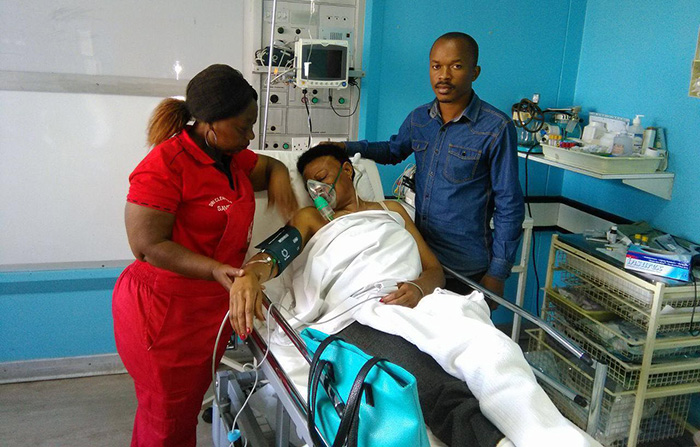MDC-T MP Thabitha Khumalo diagnosed with chemical pneumonia after tear gas attack
Opposition Movement for Democratic Change (MDC-T) Member of Parliament for Bulawayo East, Thabitha Khumalo has been diagnosed with ‘chemical pneumonia” almost four months after inhaling teargas fired by riot police in Harare.

As reported by Nehanda Radio in August this year, Khumalo was admitted to hospital after inhaling the teargas during a clampdown by anti-riot police who were trying to suppress up to 2000 anti-Mugabe protestors under the #Tajamuka and #ThisGown movements.
This week Khumalo told Nehanda Radio “I have been diagnosed as having chemical pneumonia, which is the inflammation of lung tissue from poisons or toxins.
“I have been given medication for the next 7 days for the doctor to see if I can manage my breathing if there is no change I will go for another x-ray and blood tests.
“Unfortunately the chemicals can not be removed from my system I have to wait for my body to flush them as and when apparently it takes time.”
Chemical pneumonia is an unusual type of lung irritation. Pneumonia usually is caused by a bacteria or virus. In chemical pneumonia, inflammation of lung tissue is from poisons or toxins. Only a small percentage of pneumonias are caused by chemicals.
Tear gas works by irritating the mucous membranes of the eyes, nose, mouth, and lungs. Typically, the effects kick in after around 30 seconds, and include a burning, watery sensation in the eyes, difficulty breathing, chest pain, excessive saliva and skin irritation.
According to the Chemical Weapons Convention of 1993, which was signed by almost every nation in the world, tear gas is banned in warfare but legal in domestic riot control.
“Tear gas under the Geneva Convention is characterized as a chemical warfare agent, and so it is precluded for use in warfare, but it is used very frequently against civilians,” Sven-Eric Jordt, a nerve gas expert at Yale University School of Medicine explained in an interview with National Geographic in 2014. “That’s very illogical.” Nehanda Radio






